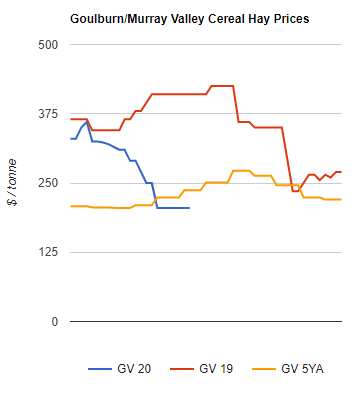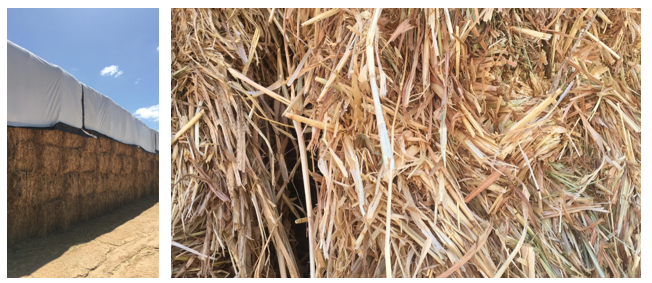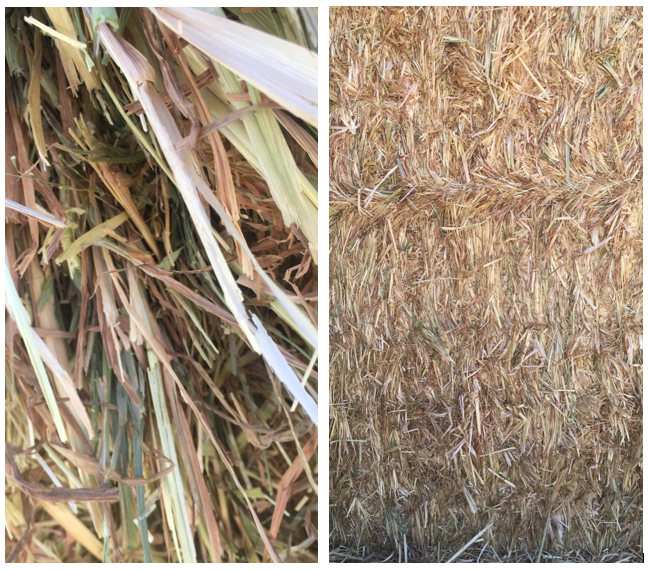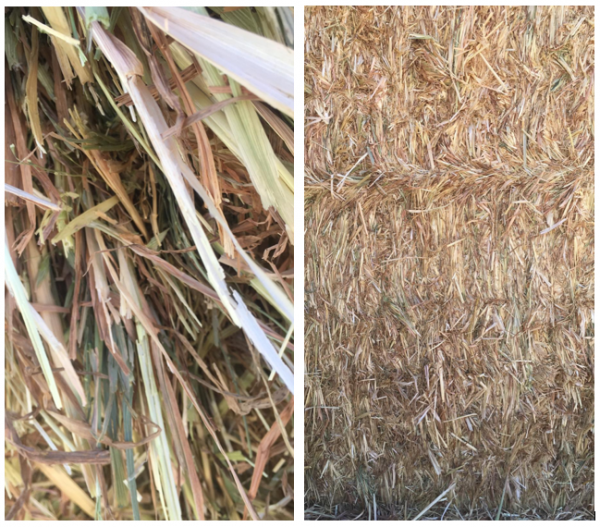Seasonal Update
Many parts of New South Wales, Victoria, South Australia and Tasmania have reported three to four consecutive days of heavy frosts, some areas the temperature was recorded as low as -4˚C.
In light of the current weather patterns, demand for good quality roughage from cattle producers may be arrive earlier this season.
In northern parts of the country, farmers are looking for good quality hay for weaner cattle. The demand isn’t significant as numbers are down due to heavy destocking over the past two years.
Growers are reporting some difficulty getting onto paddocks due to the wet conditions and will struggle to spread fertilisers and spray. It may be a season where planes are increasingly used as a replacement of land machinery to get these jobs done.
Trading and Marketing

Victoria
The region is still very green, and feed continues to grow. However, this growth is much slower now but continues to graze well.
Enquiry for purchased feed is low, there is very little hay moving from the region compared to a two months ago. Many sheds are still full due to contracts in the north not being fulfilled.
All prices in Victoria remain steady this week too.
| Change | per t | ||
| Cereal hay | +/- $0 | $190-220 | Steady |
| Lucerne hay | +/- $0 | $450-500 | Steady |
| Straw | +/- $0 | $80-100 | Steady |
| Pasture hay | +/- $0 | $250-330 | Steady |
Western Australia
Southwest Western Australia has received some patchy rain with heavier falls closer to Esperance. The southern area continues far better than the top of the grain belt.
Hay crops have emerged and looking favourable at this stage in the south with conditions satisfactory.
Some export hay growers have increased plantings for new season hay. Given the right conditions and that it goes on to meet requirements there is a certainty that this extra hay will be snapped up for export.
Many are trying to get by with what feed they have as domestic prices are assumed to be too expensive. There is very little hay or straw left that is not spoken for in Western Australia. Straw, lucerne, and pasture is difficult to source. Growers have been Turing new inquiries down as they don’t have sufficient supply.
No price changes in Western Australia this week.
| Change | per t | ||
| Cereal hay | +/- $0 | $320-370 | Steady |
| Lucerne hay | +/- $0 | $450-490 | Steady |
| Straw | +/- $0 | $120-140 | Steady |
| Pasture hay | +/- $0 | $200-220 | Steady |
South Australia
Southeast South Australia has reported no rain but will potentially see some over the weekend.
Farmers are now coming to the end of winter panting and everything is on track for a good season. The first of the crops are well and truly up and doing well.
Demand remains flat in southeast South Australia. There has been some nervous selling potentially feeling that any old and damaged stocks need to be moved before a flood of new season hay comes onto the market in the spring. Demand will creep up as it does for most areas when feed is needed to carry over stock during the cold months.
No price changes in South Australia this week.
| Change | per t | ||
| Cereal hay | +/- $0 | $270-300 | Steady |
| Lucerne hay | +/- $0 | $380-500 | Steady |
| Straw | +/- $0 | $100-140 | Steady |
| Pasture hay | +/- $0 | $200-250 | Steady |
Pictures of 20/19 Season Crops
Hay: Oaten Hay LPRD (Low Premium Rain Damage)
Specifications: Feels crunching soft, minimal amount of weather damage spots, sweet and fresh aroma, >1% Rye Grass, JC-1 colour (70% Green) and JC-3 Super stem size (<6mm).
Location: KANIVA, VIC, 3419


Sources: Bureau of Meteorology, Dairy Australia, WX Maps, Lachstock Research, Weekly Times, Grain Central, Mecardo Expert Market Analysis, Feed Central and Wingara AG.
By Katie Lindkvist, Wingara AG.

